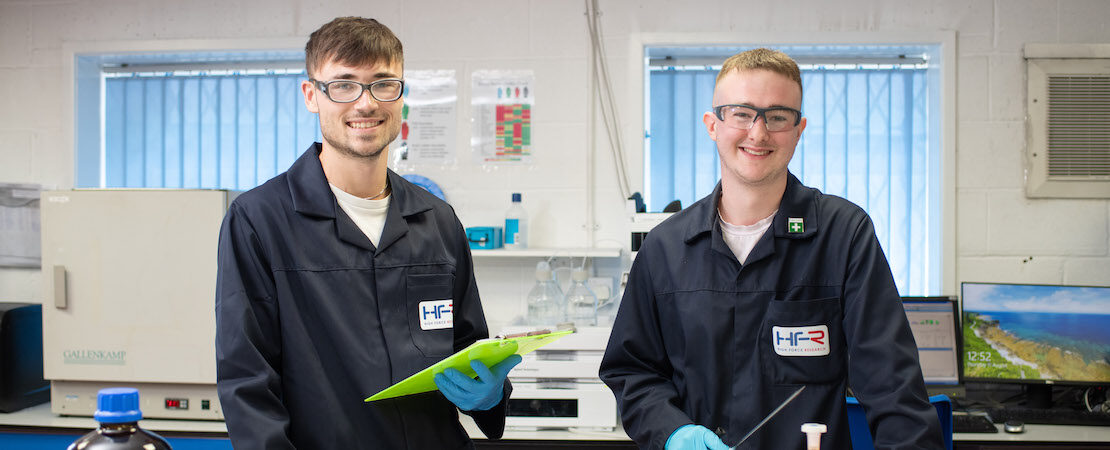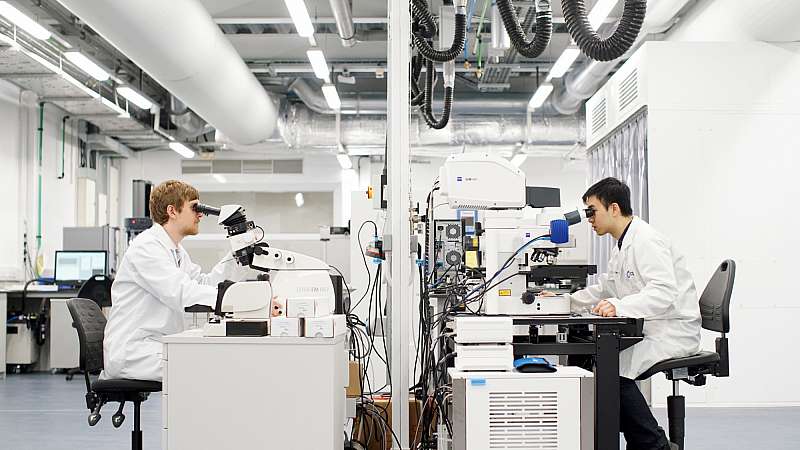The North East Local Enterprise Partnership (LEP) has praised the region’s health and life sciences sector for its vital work in the global effort against Covid-19.
The health and life sciences community is home to 150 businesses across the region. Its strengths include an advanced manufacturing cluster, contributing significantly to the global pharmaceutical industry, and a thriving biotech cluster.
Many companies working in the North East health and life sciences sector have channelled their world-leading expertise into finding solutions to the Covid-19 crisis.
One such business is Newcastle-based QuantuMDx, which has invested over £11 million to accelerate development, scale-up and manufacture of Q-POC – its rapid point-of-care testing system – in response to the COVID-19 pandemic.
Q-POC is a portable, PCR device offering rapid, sample-to-answer, molecular diagnostic testing at the point of care, with results in approximately 30 minutes. The Q-POC system comprises a sample collection kit, single-use test cassette and analyser.
The company’s first commercial assay for Q-POC will detect SARS-CoV-2, the virus causing COVID-19, and Flu A & B, providing a powerful rapid PCR diagnostics and surveillance tool for clinicians and public health officials.
QuantuMDx welcomed Prime Minister Boris Johnson for a tour of its purpose-built HQ in February.
Jonathan O’Halloran, Chief Executive, QuantuMDx, (pictured) said: “It is incredible to see the progress that has been made so far in response to the Covid-19 pandemic, including the many achievements of companies here in the North East of England.
“By scaling up we were able to successfully accelerate the development of our Q-POC system for SARS-CoV-2 testing. The Q-POC will be one of the fastest, most accurate and powerful PCR diagnostic devices on the market and we look forward to being able to offer this rapid, point of care diagnostic solution to help front line health workers across the world.”
Life sciences businesses based in The Biosphere on Newcastle Helix adapted and innovated using existing research and development expertise to support the fight against COVID-19. Atelerix, who have developed a ground breaking solution for cell preservation, used existing technology to extend the shelf life of COVID-19 test kits. Independent research organisation ExplantLab have been investigating the influence of HLA genotype on the severity of COVID‐19 infection, looking at whether certain genes may protect individuals from developing serious complications. Cancer diagnosis company MDNA Life Sciences made Covid-19 testing available to commercial businesses; and Alcyomics are investigating the immune response to the SARS-CoV-2 virus, critical for the evaluation of vaccines and clinical management of patients.
The Biosphere is becoming a popular hot spot for innovative life science organisations, with the latest addition being an Innovation Lab, part of the NHS Integrated Covid Hub North East. The specialist lab team at The Biosphere is dedicated to speeding up the validation and implementation of new methods for cutting-edge Covid testing and builds on Newcastle Hospitals’ international reputation for life science research and innovation.
John Tyson, Head of the Innovation Lab, said: “There has been an incredible amount of collaborative effort and learning throughout the pandemic from industry, academia, the NHS and the community.
“At our Innovation Lab we are working closely with industry and academia to accelerate the development of new COVID diagnostics, which can have an immediate impact and also provide a stronger resilience against future infectious diseases threats.
“As we look to move out of this acute phase, we have a real opportunity to build a lasting legacy across sectors and life sciences in the region.”
Also at the forefront of the COVID-19 response is CPI, an independent, deep-tech innovation centre and a founding member of UK’s High Value Manufacturing Catapult . CPI acts as a catalyst bringing together academia, businesses, government and investors to translate bright ideas and research into the marketplace and supports innovations in healthtech and cleantech.
Arun Harish, Strategy Director at CPI, said: “CPI is one of the leading mRNA innovation and manufacturing experts in the UK, currently working as part of the Government’s Vaccine Task Force to lead a rapid response vaccine unit to develop and manufacture new candidates to fight COVID -19 virus variants of concern.
“CPI’s National Formulation Centre at NETPark in Sedgefield is at the forefront of innovation in nanotherapeutic drug delivery systems such as the Lipid Nanoparticles (LNP) that are used to encapsulate the mRNA vaccines. When new variants of concern of COVID-19 are identified by VUEAG (the expert panel of Scientists in the UK), mRNA vaccines variants can be developed in a matter of weeks, ready for clinical trial confirmation of efficacy and subsequently commercial manufacture of millions of doses if needed.”
CPI has also contributed to UK’s diagnostics efforts through innovation and manufacture of critical reagents and active contribution to the Rapid Antigen Test consortium.
The LEP recently published its North East Health, Life Sciences and Medicines Manufacturing Strategy, designed to double the number of North East jobs in the health, life sciences and pharmaceuticals industry to 24,000 by 2030.
Health and life sciences is identified as an area of opportunity for the region in the LEP’s North East Strategic Economic Plan, which is the roadmap for creating 100,000 more and better jobs by 2024.
In 2019, Health and Life Sciences in the North East region had a turnover of £1.7bn, up from £1.5bn in 2018.
Between 2010 and 2019, overall employment in the sector increased by 1,400, which represents an equivalent increase of 22% compared to 9% nationally.
Lucy Winskell OBE, Chair of the North East LEP, said: “The world-leading science and innovation developed here in the North East in the ongoing battle against Covid-19 highlights the global importance of our health and life sciences sector.
“The North East has made an incredible contribution to the Covid-19 response through our manufacturing and innovation strengths, our public health and care services, and in the development of testing.
“This has showcased on a global scale our diverse life sciences, health innovation and medicines manufacturing capabilities. We are committed to building on the fantastic work already being done in this area through the implementation of our ambitious North East Health, Life Sciences and Medicines Manufacturing Strategy.”
Read more about the North East Health, Life Sciences and Medicines Manufacturing Strategy.




